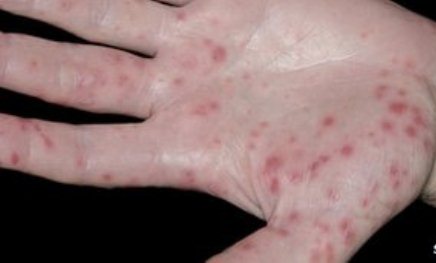A trial involving 10,000 children, published in the Lancet, showed the vaccine was 90% effective against one virus which causes the disease.
It does not protect against other viruses that result in the disease.
Viruses can cause large outbreaks of hand, foot and mouth disease. In 2009, there was an outbreak in China involving 1.2 million people. Nearly 14,000 people had severe complications and 353 people died.
Groups of researchers in Jiangsu province and Beijing tested a vaccine made from a deactivated enterovirus 71 (EV71), which causes the disease.
Two jabs were given to children between six and 35 months old. They prevented 90% of cases of hand, foot and mouth disease caused by EV71.
"Infection with EV71 is of particular concern because it can cause severe disease and even death in children. The EV71 vaccine could help prevent hospital admissions and severe cases," the researchers said.
Hand, foot and mouth disease is caused by many other viruses, such as Coxsackievirus A16 and even other strains of EV71, so this vaccine could not eliminate the disease.
The researchers themselves warn that: "The EV71 vaccine might have little part in reducing the overall incidence of HFMD, even by universal mass immunisation of children."
Commenting on the research, Dr Nigel Crawford and Dr Steve Graham, both from the University of Melbourne, said the vaccine was tailored to the predominant strain in China.
"The major effect of this vaccine will be to reduce hospital admission, which is an important result of many vaccines.
"The next step is to assess the appropriateness of including an EV71 vaccine in China`s national immunisation programme."
More about:
















































